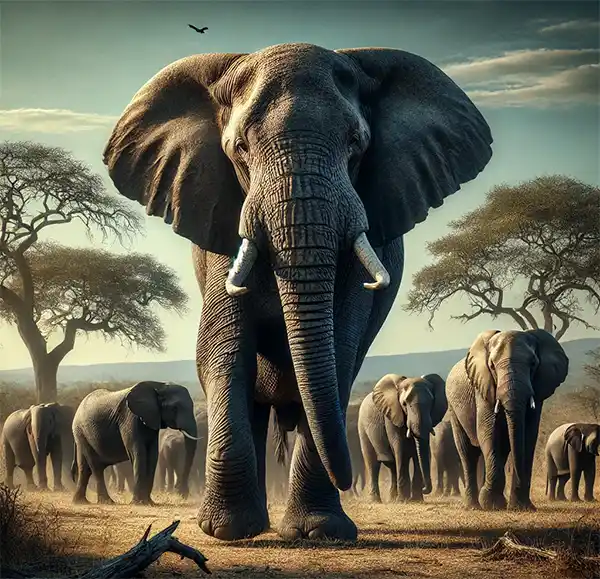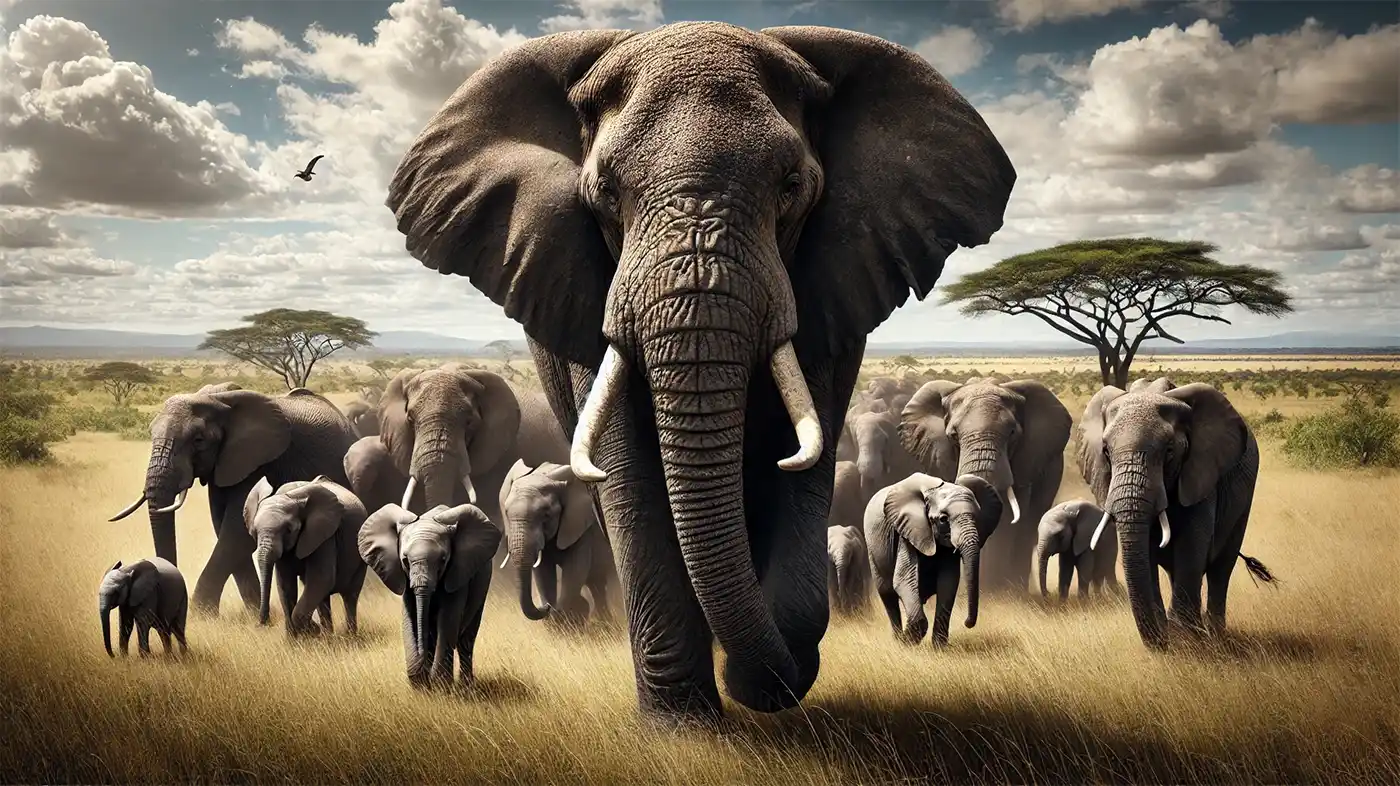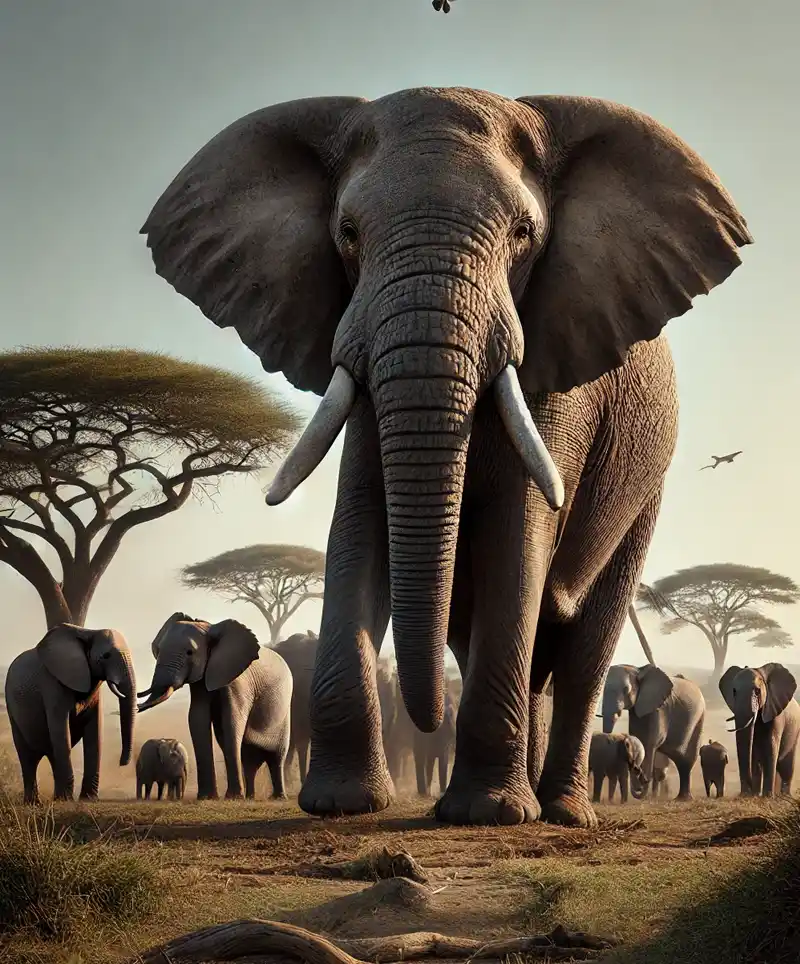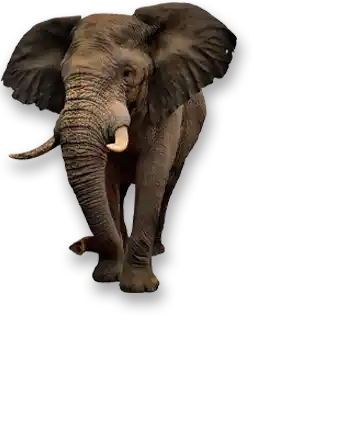Celebrating the Giants of the Animal Kingdom
August 12th marks World Elephant Day, a day dedicated to celebrating one of the most magnificent creatures to ever roam the earth. Elephants, with their grand stature, impressive memory, and complex social structures, have fascinated humans for centuries. But beyond their awe-inspiring presence, these gentle giants face numerous challenges in the wild, making World Elephant Day both a celebration and a call to action.
The Majesty of Elephants
Let’s start with the obvious—elephants are big. Really big. In fact, they are the largest land animals on Earth. A fully grown African elephant can weigh as much as 14,000 pounds and stand over 10 feet tall at the shoulder. To put that in perspective, that’s like stacking about three average-sized cars on top of each other and giving them a trunk. But there’s more to elephants than just their sheer size.
Elephants are incredibly intelligent animals, often considered among the smartest in the animal kingdom. Their brains weigh around 11 pounds, which might not sound like much until you consider that a human brain weighs about 3 pounds. And what do they do with all that brainpower? For starters, elephants have remarkable memories—so much so that the phrase “an elephant never forgets” has become a staple of common wisdom. They can remember the locations of water sources over vast distances, recognize individual elephants even after years apart, and have been known to mourn the loss of family members—a sign of their deep emotional intelligence.
 But let’s not forget their trunks—arguably the Swiss Army knife of the animal kingdom. An elephant’s trunk is a complex organ made up of over 40,000 muscles (for comparison, the human body has just over 600). With it, elephants can perform tasks ranging from uprooting trees to picking up a single blade of grass, and they can even use it as a snorkel when swimming. It’s like having a built-in, super-flexible arm with the sensitivity of a hand and the strength of a small crane.
But let’s not forget their trunks—arguably the Swiss Army knife of the animal kingdom. An elephant’s trunk is a complex organ made up of over 40,000 muscles (for comparison, the human body has just over 600). With it, elephants can perform tasks ranging from uprooting trees to picking up a single blade of grass, and they can even use it as a snorkel when swimming. It’s like having a built-in, super-flexible arm with the sensitivity of a hand and the strength of a small crane.
The Social Lives of Elephants
Elephants are highly social animals, living in groups called herds that are typically led by the oldest female, known as the matriarch. The matriarch isn’t just the leader because she’s been around the longest—she’s also the wisest. Her knowledge of the terrain, water sources, and even conflict resolution is invaluable to the herd’s survival.
These herds are tight-knit, with strong bonds between members. Elephants show affection through touching trunks, playing, and even “hugging” by wrapping their trunks around each other. And don’t think for a second that elephants don’t know how to have fun. Young elephants are known to play games, chase each other, and engage in trunk wrestling, which is the elephant equivalent of a friendly arm-wrestling match.
Communication is another area where elephants excel. They use a range of sounds, from trumpets to rumbles, and can even communicate using low-frequency sounds that are inaudible to humans but can travel several miles. It’s like having a built-in walkie-talkie with an impressive range. These sounds convey everything from warnings to mating calls, and elephants also use body language—such as ear flapping and trunk waving—to express their moods.
The Challenges Elephants Face
While elephants may seem like the kings and queens of the savannah, they face numerous challenges that threaten their survival. Habitat loss, human-wildlife conflict, and poaching for their ivory tusks are some of the most significant threats to elephant populations. Despite international bans on ivory trade, illegal poaching continues, driven by demand in some parts of the world. This has led to a dramatic decline in elephant populations, particularly among African elephants.
Human-elephant conflict is another major issue. As human populations expand, they encroach on elephant habitats, leading to confrontations. Elephants, being the intelligent creatures they are, sometimes venture into farmland in search of food, which can lead to crops being destroyed and tensions rising between humans and elephants. These conflicts often end tragically for the elephants, which are sometimes killed to protect crops and property.
Conservation efforts are in place to address these issues, but they require global cooperation and support. Organizations around the world work tirelessly to protect elephants through anti-poaching initiatives, habitat preservation, and education programs aimed at reducing human-elephant conflict. World Elephant Day serves as a reminder of the importance of these efforts and encourages people to get involved in any way they can.
Elephants in Culture
Elephants have long held a special place in human culture, symbolizing strength, wisdom, and longevity. In many cultures, elephants are revered animals. In Hinduism, the god Ganesha, who has the head of an elephant, is a deity of wisdom, success, and good fortune. In Buddhism, the white elephant is a symbol of mental strength and purity.
Elephants also appear in countless stories, fables, and folklore around the world. From the wise elephant king in Jataka tales to the loyal elephant in African folktales, these animals are often depicted as noble, wise, and kind-hearted beings. Even in modern times, elephants have starred in movies, books, and TV shows, further cementing their status as beloved cultural icons.
But let’s not forget the humorous side of elephants in culture. From Dumbo, the flying elephant, to Horton, who heard a Who, elephants have provided entertainment and life lessons for generations. And who could overlook the countless jokes involving elephants and refrigerators, which have been baffling and amusing people for decades? (“How do you fit an elephant in a refrigerator? Open the door, put the elephant inside, and close the door. Obviously!”)

How to Celebrate World Elephant Day
World Elephant Day isn’t just about admiring these incredible creatures; it’s also about taking action to ensure their future. There are many ways to get involved:
- Learn About Elephants: Educate yourself about the challenges elephants face and what’s being done to help. Knowledge is the first step toward making a difference.
- Support Conservation Efforts: Donate to organizations that work to protect elephants and their habitats. Every little bit helps.
- Raise Awareness: Share information about World Elephant Day and the plight of elephants on social media. The more people know, the more they can do.
- Visit an Elephant Sanctuary: If you’re able to, visit a reputable elephant sanctuary to learn more about these animals and support their care.
- Say No to Ivory: Avoid purchasing products made from ivory and support laws that ban the ivory trade.
But above all, take a moment to appreciate the majesty of elephants. Whether through a documentary, a book, or just looking at pictures of these incredible animals, let World Elephant Day be a reminder of how fortunate we are to share the planet with such extraordinary creatures.
Elephants aren’t simply important because they’re big and impressive (though they certainly are). They play a crucial role in their ecosystems, from shaping landscapes by uprooting trees to spreading seeds that help regenerate forests. Their presence is a sign of a healthy environment, and their loss would have a profound impact on the biodiversity of their habitats.
So on this World Elephant Day, let’s celebrate elephants not just for their size or their cultural significance, but for the vital role they play in the natural world. Let’s honor their intelligence, their emotional depth, and their place as one of the most iconic animals on the planet. And let’s commit to doing what we can to ensure that future generations will still have the chance to marvel at the sight of an elephant in the wild.
Please Share our Content






 But let’s not forget their trunks—arguably the Swiss Army knife of the animal kingdom. An elephant’s trunk is a complex organ made up of over 40,000 muscles (for comparison, the human body has just over 600). With it, elephants can perform tasks ranging from uprooting trees to picking up a single blade of grass, and they can even use it as a snorkel when swimming. It’s like having a built-in, super-flexible arm with the sensitivity of a hand and the strength of a small crane.
But let’s not forget their trunks—arguably the Swiss Army knife of the animal kingdom. An elephant’s trunk is a complex organ made up of over 40,000 muscles (for comparison, the human body has just over 600). With it, elephants can perform tasks ranging from uprooting trees to picking up a single blade of grass, and they can even use it as a snorkel when swimming. It’s like having a built-in, super-flexible arm with the sensitivity of a hand and the strength of a small crane.









 "Sláinte!" is a traditional Irish expression used as a toast, equivalent to "Cheers!" in English.
"Sláinte!" is a traditional Irish expression used as a toast, equivalent to "Cheers!" in English.